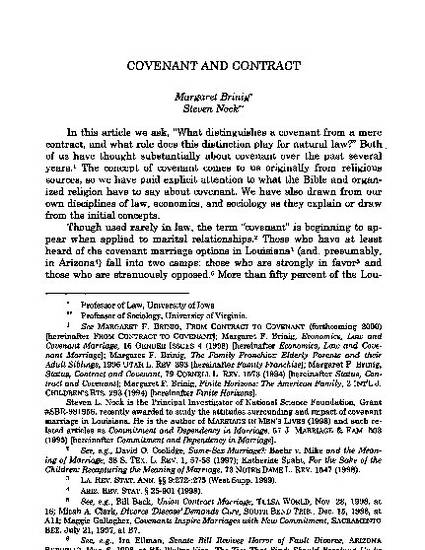
In this article we ask, "What distinguishes a covenant from a mere contract, and what role does this distinction play for natural law?" Both of us have thought substantially about covenant over the past several years. The concept of covenant comes to us originally from religious sources, so we have paid explicit attention to what the Bible and organized religion have to say about covenant. We have also drawn from our own disciplines of law, economics, and sociology as they explain or draw from the initial concepts.
Covenant is a concept that takes us beyond contract. Indeed, the idea that marriages (or society, for that matter) could be organized around contracts solely is flawed. In every contract there are actually two contracts: the first is the contract we make with another person, the second is the hidden contract we all make among ourselves to obey the rules of the first contract. Behind the idea of contracts, in other words, is the more fundamental idea of trust that contracts will be honored. While contracts presume rational self-interest and seek to promote and protect those, trust is inherently non-rational. Covenant is more like trust than contract. Alternatively, covenant is faith that is not based on rationality.
Available at: http://works.bepress.com/margaret_brinig/7/

Reprinted with permission of Regent University Law Review.